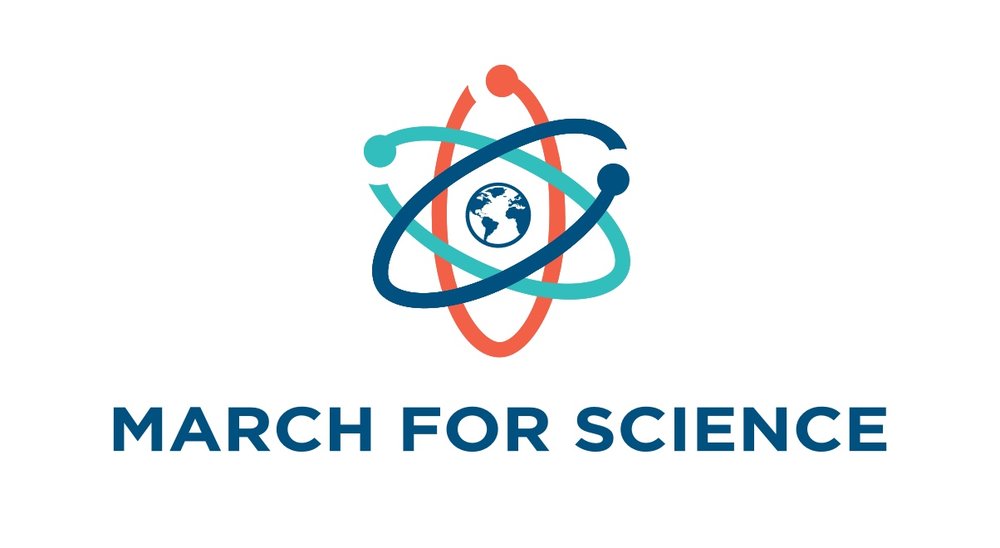Is the March for Science Worthwhile?

Support more videos like this at patreon.com/rebecca!
Sorta transcript:
Tomorrow is the March for Science, a nationwide demonstration in which scientists and science enthusiasts like myself will take a stand for, well, science, I guess. Like many grassroots movements, this one had a good deal of controversy and in-fighting, so I wanted to go over some of the problems in part because they raise some interesting issues for the world at large and also because I just want to try to sort out how I feel about all of it.
One of the first issues with the March for Science was about diversity. Originally, the organizers expressed a desire to be inclusive and be sure that women, people of color and other marginalized groups were well-represented. This made some people, like Steven Pinker, upset. Being inclusive was, to him, anti-science and too political. So, the march organizers walked back the inclusiveness talk in an attempt to make Steven Pinker like them again, which seemed to work.
That brought up another issue — whether or not the march was, in fact, “political.” The organizers claim that it isn’t, which I found very odd. I mean, the march is clearly inspired by all the budget cuts and anti-science bullshit coming out of Trump’s administration and enthusiastically supported by the Republican-dominated congress. Marching for science in the face of that is pretty blatantly political.
The organizers are succumbing to the myth that science is apolitical — a simple error that everyone should really just stop making, considering that we’ve known about climate change for more than a century and it remains such a politicized topic that 85% of conservative Republicans don’t understand that the earth is warming due to human activity, compared to 21% of liberal Democrats. That’s as starkly political as it gets, whether you like it or not.
Then we need to talk about the fact that science has been used to seriously hurt and kill marginalized people in the past and right now. You probably know about famous cases like the Tuskegee syphilis study back in the 1930s, but you may not realize that in 1997 the US government was caught funding a study in which pregnant women with HIV got treatments known to be ineffective at stopping the spread of the disease to their fetuses. In 2014, pharmaceutical companies were caught recruiting homeless people to test experimental drugs.
People — even scientists — seem to get confused over the alleged objectivity of science. The scientific process was developed as a way to evaluate data as objectively as possible, and the reason is that humans are inherently, permanently subjective. Even scientists! A good scientist knows they have biases, and that’s why things like control groups and peer review exists. It’s also why ethics standards exist. We wouldn’t need any of this if scientists were as perfectly objective as many people seem to believe.
And that’s why the March does need to be diverse — to make sure that women, people of color, people with disabilities, people of minority religions, and other marginalized people know that they belong, too. To know that organized scientists care just as much about the loss of funding under Trump as they care about the proliferation of anti-scientific garbage like “stop and frisk” laws, and the serious political AND scientific catastrophe that is the city of Flint being without clean drinking water for years.
And that’s also why the March is and has to be political. The funding cuts are because of Donald Trump and the Republicans in Congress. The hits to climate research are because of Donald Trump and the Republicans in Congress. The proliferation of outright lies is because of Donald Trump and the Republicans in Congress. If scientists are going to march for science and reality and facts, then they’ll be marching against Republicans. They’ll be political.
And finally, that’s why the people marching should have a goal other than just “raising awareness.” The Republicans know what they’ve done. They’re proud of it! They hate science, and they hate inconvenient facts. I hope the people marching realize the work isn’t done after the demonstration — that in fact, the best thing a demonstration can do is motivate people to real action. That’s why I love the efforts of groups like 314 Action, who are hoping to convince more scientists to run for office. If you care about what’s happening, make sure you’re following through and actually doing something about it.
I’ll leave you with a recommendation to read a piece over on The Root that includes contributions from some awesome scientists who speak out on behalf of marginalized people in the sciences, explaining the problems with the march and some potential solutions.
As for me, I’ll be at the march, and I’ll be there as an unapologetically political being. Fuck Donald Trump, and fuck politicians who devalue science for their own purposes.





I agree that science is inherently political. And I also know that sometimes old prejudices remain entrenched in the scientific community for longer than they do among laypeople who are also pro-science; it sometimes seems that only fundamentalist Christians and other groups like that hold on to certain prejudices longer than the scientific community does, and, even though there isn’t really objective support for prejudice and disrespect, which are inherently subjective ideas, the research in those areas often will not change direction until support of those prejudices among laypeople drops significantly. And no, this is not because suddenly people injected politics into science; the politics were there all along, they just changed, and those changes were grudgingly followed by the scientific community. As an autistic person who is currently studying for a scientific career involving animals, I feel this. I find some of the info fascinating, yet I also find that ways that are similar to or identical to the ways in which I have been mistreated due to my autism are often justified by research that looks only at things like eradication of autism symptoms, never things like trauma, even though, oddly enough, some of those broad principles, if used in a respectful way that listen to others instead of for justifying mistreatment, could actually be quite useful as a tool for improving understanding of trauma – those principles are broad, after all, and broad principles have a very useful place in science.
Autism, naturally, is not the only area in which this happens; all forms of prejudice are, including racism (think Charles Murray and people taking an inordinately long time to figure out that poverty and other stressors increase the risk of heart disease within the African-American community, not just obesity and poor diet), and sexism. Regarding sexism, there is a little cautionary tale I learned from a really informative book about abuse entitled “Why Does He Do That” by Lundy Bancroft, that I want fellow aspiring scientists to take heed of, regarding a certain Sigmund Freud.
You see, when Sigmund Freud began his career, he noticed that women were experiencing stress, and he noticed that the stresses they felt always seemed to involve sexual abuse. He wrote a paper to that effect titled “The Aetiology of Hysteria”, which showed insights that were far ahead of his time on trauma suffered by women, and tied traumas to abuse. Sadly, a lot of the people he worked with did not want to believe this, and some may even have been abusing women themselves and would thus have benefitted from keeping this knowledge hidden. They scorned him and mocked him for his ideas – sound familiar? It should, because this type of behavior happens in the scientific community a lot and is glorified far too often. Freud bowed to the pressure and, as a result, he wrote the now-infamous Oedipus Complex and other such sexist theories, which have since been debunked in a scientific/political climate which is far less tolerant of sexism than the one Freud worked in. While not all of Freud’s non-sexist theories stood the test of time either, it is possible that, had Freud been able to not give in to the professional pressure and also not be drummed out, he might have been able to create some more enduring theories, because at least some of the theories he was pressured out of disseminating have been found to be correct. This is not the case; the sexist theories Freud produced in large part thanks to professional pressure have been debunked in science, but unfortunately continue to endure in multiple circles and to lend a “scientific” and “objective” veneer to certain sexist prejudices among laypeople, making those prejudices all the harder to root out in those circles. And believe me, I know it’s not easy to resist professional pressures in favor of supposedly “objective” prejudices today, especially since you often have to balance between resisting professional pressures and also avoiding inserting wishful beliefs that don’t actually reflect reality. It’s a delicate dance, but it is one worth doing so as to be as objective as possible without entrenching prejudices which can, at best, skew results in an inappropriately biased direction, and at worst, be used by individual people and/or regimes to justify hateful treatment. Psychology researcher Morton Gernsbacher actually published a paper, “How to Spot Bias in Research”, which is clearly written and has some useful tools for reducing bias in science that involves marginalized people (and yes, non-human animals too, but let’s save those comparisons for when you are actually working with non-human animals because most human/animal comparisons are pejorative, including some of the comparisons put forth by Peter Singer, who is a vegan). The paper is right here: https://www.ncbi.nlm.nih.gov/pmc/articles/PMC4258840/
And Singer is pretty horrible on issues of disabilities.
That is what I was referring to. His comparisons between disabled people and animals were pejorative – towards the humans. And they weren’t all that respectful of the animals, either.
I was at the March for Science in Boston and as much as it tried to be apolitical, the politics kept leaking in. You can’t put two people together in a confined space without politics happening, let alone 50,000.
Many of the signs were about climate change. Trump is an absolute disaster in this regard but the neo-liberal policies of Reagan, Bush, Bill Clinton, George Bush and Barack Obama that a president Hillary Clinton would have continued have done nothing but allow it to accelerate. Yet if Hillary had won none of these marches would have happened and most of the marchers would have happily gone on about their lives while the biosphere continued to erode away.
Unfortunately the environment will never be THE priority it needs to be under our current system. The ‘free market’ won’t fix this.